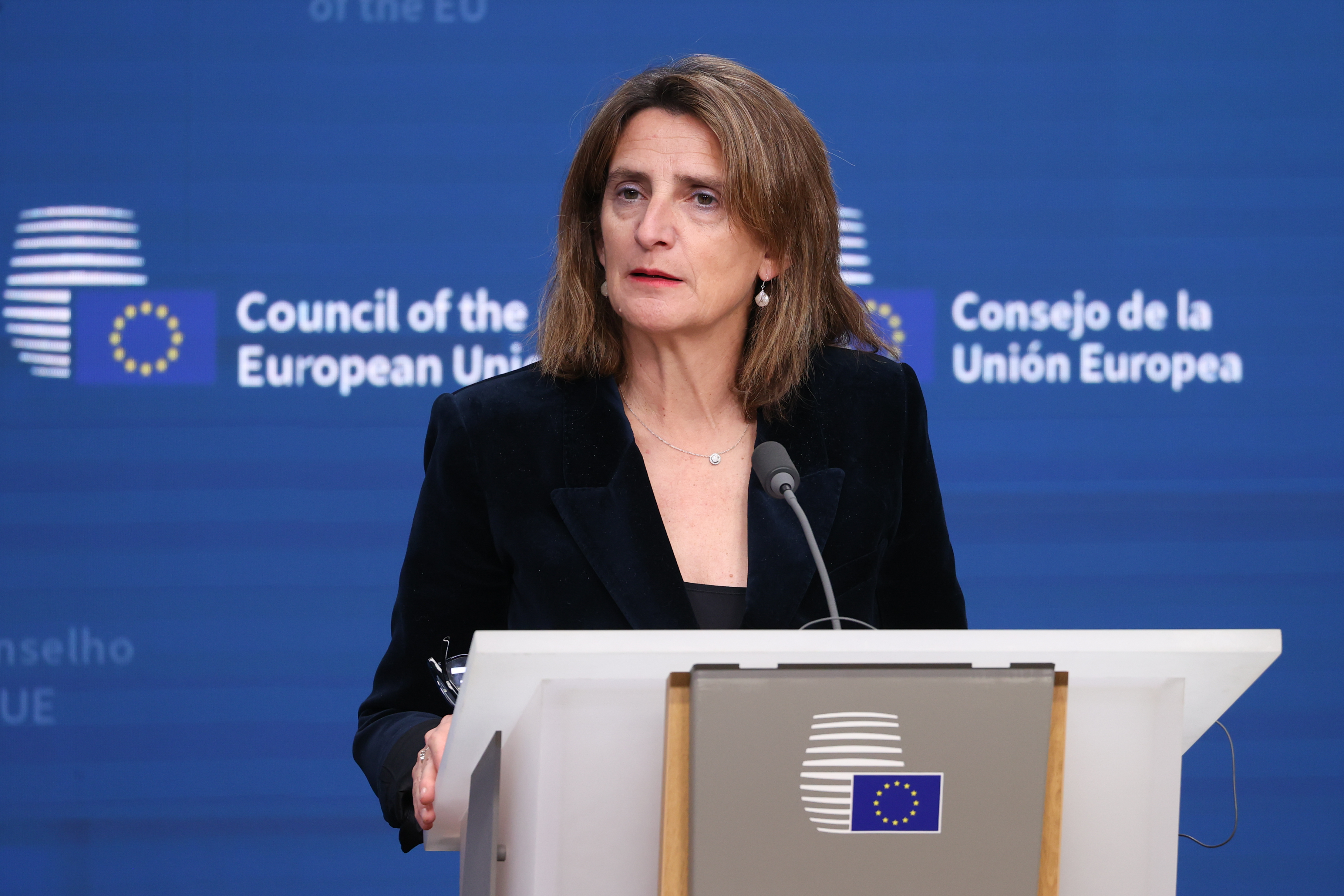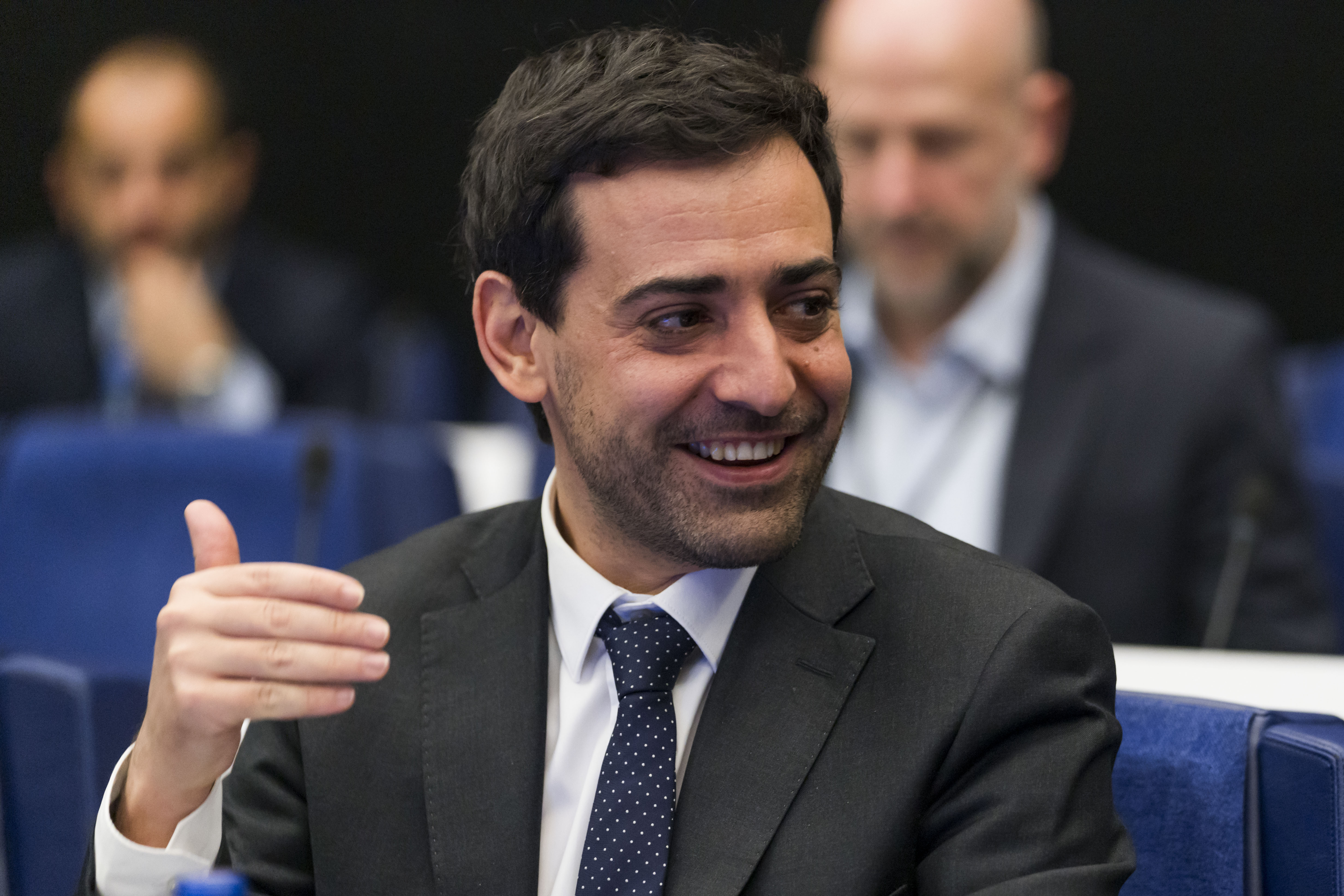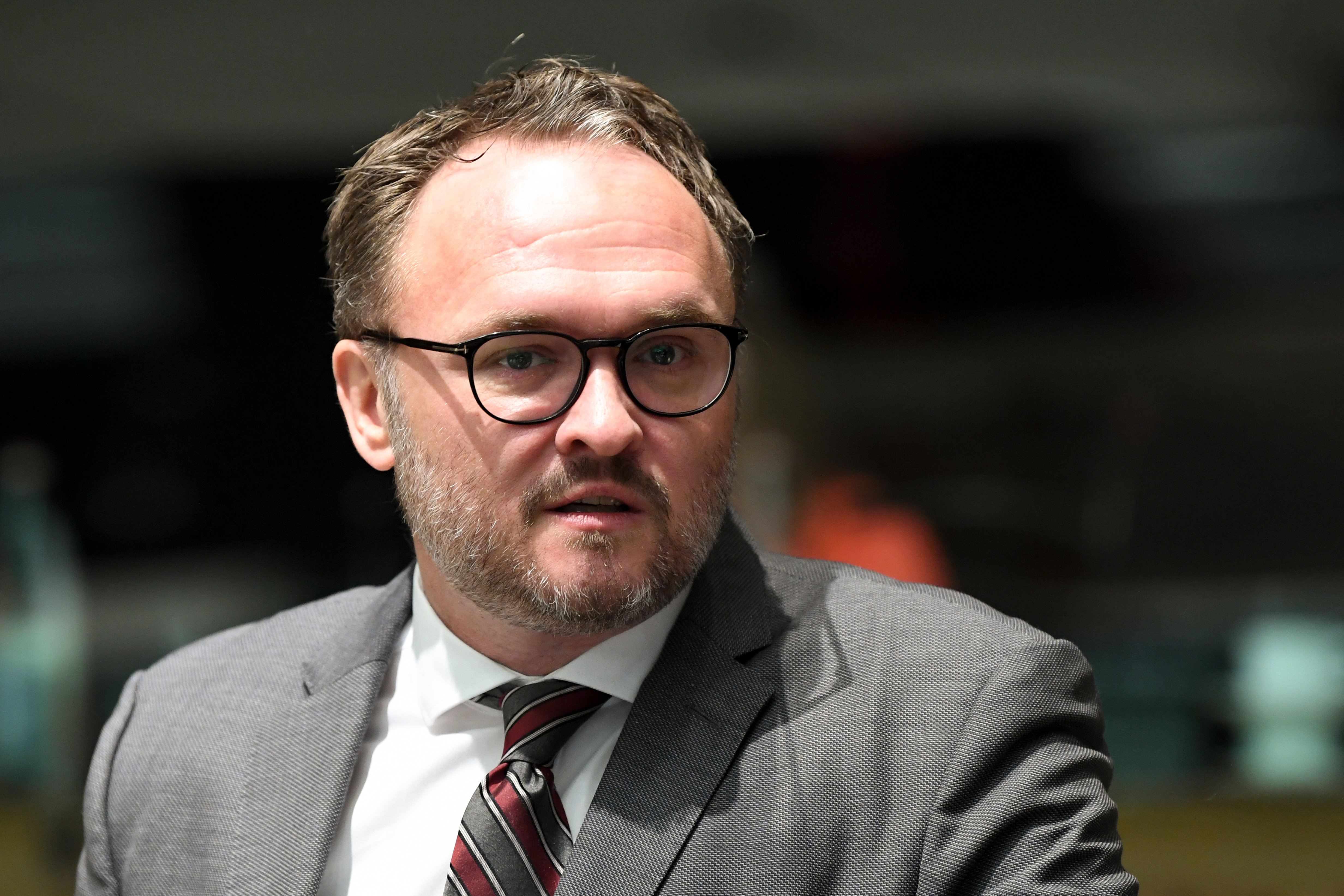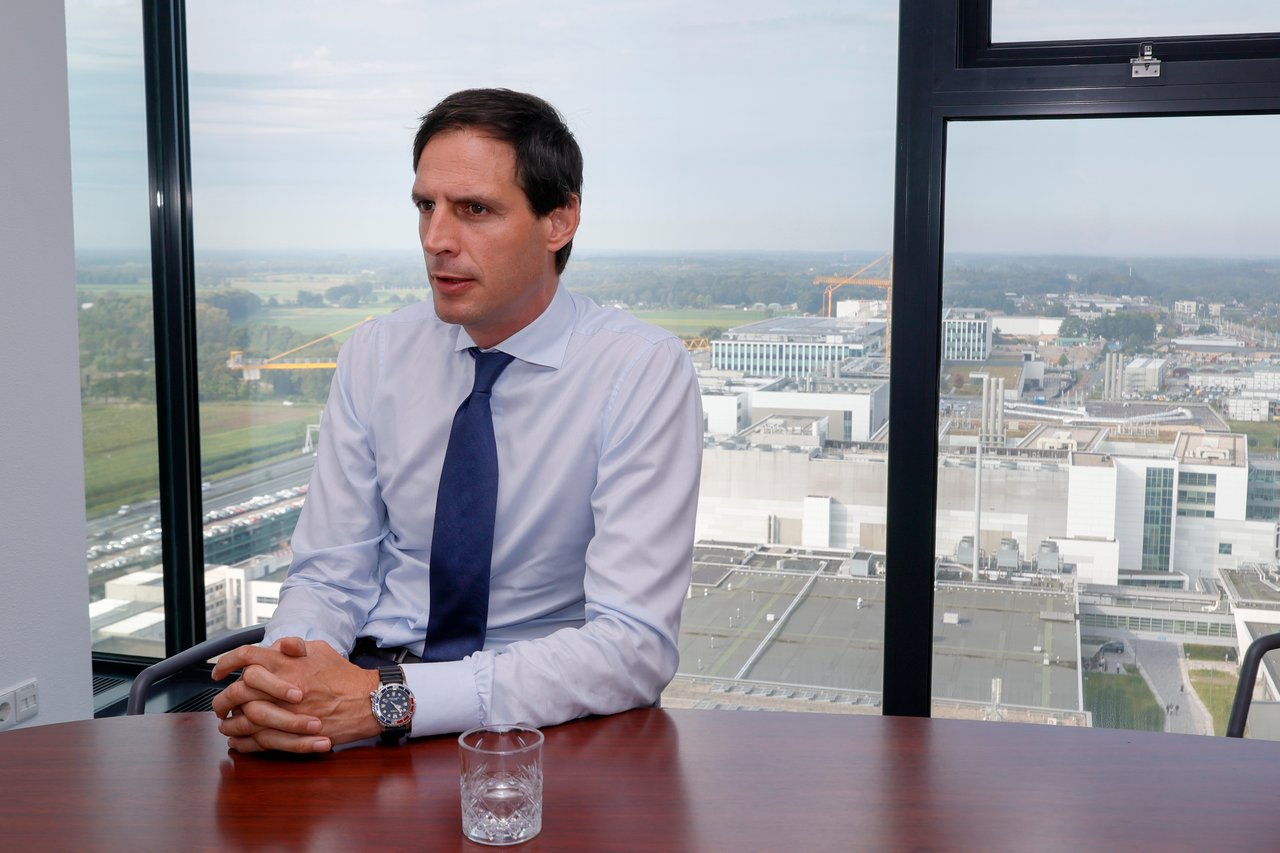Analysis
The four faces likely to shape EU green policies for the next five years

Teresa Ribera (55, Socialists & Democrats, Spain) [DG COMP]
Ribera has been appointed EU Commission executive vice-president for a clean, just and competitive transition. She has been Spain’s energy and environment since 2018. From 2014-2018, she was the director of the Paris-based Institute of Sustainable Development and International Relations. You can see more in her CV.
A huge mandate:
Ribera will have a wide range of responsibilities, including overseeing the development of a lead market for clean tech in Europe and anti-trust enforcement, alongside the modernisation of competition policy.
In her mission letter, there is a special emphasis on the need to find investment in new clean technologies, fight EU dependency on fossil fuels, develop a clean circular economy and energy poverty as part of the housing crisis.
The Spanish politician, who is replacing outgoing competition chief Margrethe Vestager, is also tasked with leading the EU’s efforts to speed up the enforcement of competition rules and address challenges faced by SMEs and small midcaps.
Responsible committee for her hearing:
- ENVI (Environment, Public Health and Food Safety)
- ECON (Economic and Monetary Affairs)
- ITRE (Industry, Research and Energy)
Invited committees for her hearing:
- IMCO (Internal Market and Consumer Protection)
- EMPL (Employment and Social Affairs)
What to expect at the hearings?
Ribera is expected to face difficult questions about how to bring down energy prices, since one of her main responsibilities will be to rid the EU of its fossil-fuels dependency, while actively promoting the development and investment in new clean technologies such as Carbon Capture Technologies (CCT) — which are still questionable due to high costs and limited benefits.
To ensure that Europe meets its climate targets for 2030 and 2050, she is also expected to be asked about reducing emissions in sectors that have proven difficult to decarbonise such as steel, power, chemical, cement and refining. In the past, Ribera has been vocal in her opposition to nuclear power, which could bring her into conflict with pro-nuclear French and eastern European lawmakers.
Ribera's mission letter heavily focuses on skills but it gives less or no attention to social fairness — a broad and sensitive topic for her socialist group which is expected to challenge her on this.
Meanwhile, how to tackle anti-competitive practices and what concrete measures should be put forward to help the EU stay competitive are also some of the main questions the Spanish commissioner will need to answer. In recent interviews, Ribera indicated her intention to speed up and potentially shorten investigation deadlines, while also planning reforms to European merger control policy aimed at helping European businesses scale up.
Who will she work closely with?
To develop von der Leyen's Clean Industrial Deal in the first 100 days of the new commission mandate, Ribera is expected to work hand-in-hand with Stéphane Séjourné (executive vice-president for prosperity and industrial strategy).
In the context of digital markets, and the enforcement of competition rules under the new Digital Market Act, she is expected to coordinate closely with Henna Virkkunen (executive vice-president for tech-sovereignty, security and democracy).
Her mandate also includes working closely with Jessika Roswell (commissioner for water resilience and a competitive circular economy), Dan Jørgensen (commissioner for energy and housing) and Wopke Hoekstra (commissioner for climate, net zero and clean growth).

Stéphane Séjourné (39, Renew Europe, France) [DG GROW]
Séjourné has been appointed as the EU Commission's executive vice-president for prosperity and industrial strategy. His political career began as an adviser to Emmanuel Macron in 2014 when Macron was France’s economy and industry minister. After Macron's presidential election in 2017, Séjourné became his political advisor and was elected as an MEP in 2019. He was elected leader of the liberal group Renew Europe in 2023 before becoming France's foreign affairs minister earlier this year. You can see more in his CV.
A huge mandate:
Séjourné will have many responsibilities, including presenting the Clean Industrial Deal within the first 100 days of his mandate as well as monitoring the development of an industrial decarbonisation plan.
In his mission letter, an emphasis was made on the need to secure the supply of vital technologies and services such as artificial intelligence, 5G, and semiconductors.
The commissioner will also need to focus on increasing investment in clean tech companies, ensuring the deepening of the EU’s single market and enabling these firms to grow and compete globally.
Responsible committee for his hearing:
- ITRE (Industry, Research and Energy)
- IMCO (Internal Market and Consumer Protection)
- ENVI (Environment, Public Health and Food Safety)
Invited committees for his hearing:
- INTA (International Trade)
- EMPL (Employment and Social Affairs)
What to expect at the hearings?
During the hearing, French commissioner Séjourné is expected to clearly outline his plans for the Clean Industrial Deal and the development of an industrial decarbonisation plan.
For the EU to gain in prosperity and to help the development in the future of new emerging tech industries, he is also expected to be questioned about how to draw the outlines of a concrete EU prosperity plan where the focus is given to new clean energy still requiring an enormous amount of energy to be produced and the cause of unresolved waste management issues.
Who will he work closely with?
To develop a Clean Industrial Deal, Séjourné will need to join forces with Ribera (above, executive vice-president for clean, just and competitive transition) and Wopke Hoekstra (below, commissioner for climate, net zero and clean growth).
In the context of competitiveness and the development of a circular economy to answer the market demand for secondary materials especially in regard to critical raw materials, Séjourné is expected to work with Jessika Roswall (commissioner for water resilience and a competitive circular economy)

Dan Jørgensen (49, Socialists & Democrats Denmark) [DG ENER]
Jørgensen has been appointed as the new EU commissioner for energy and housing. Until very recently, he was the Danish minister for development cooperation and global climate policy. Previously, he was the Danish minister of climate, energy and public utilities from 2019-2022. Jørgensen also has wide experience with EU affairs since he was an MEP for almost a decade up until 2013. You can see more in his CV.
Responsibilities:
As the first-ever commissioner for housing, Jørgensen will have responsibilities with high expectations. Some of the responsibilities mentioned in his mission letter include working on bringing down energy prices in Europe by also fostering more citizens’ participation in the energy transition, alongside proposing a road map to end Russian energy imports in energy.
There is also a special emphasis on the need to develop a strategy to support housing demand, especially by setting up a European affordable housing plan, along with reviewing the security of the energy supply framework of the EU and adapting it to the current geopolitical context and risks due to climate change.
Finally, Dan Jørgensen will also support the deployment of small molecular reactors (SMR) on European territory, with their safety advantages many companies now look into SMR in order to produce electricity.
Responsible committee for his hearing:
- ITRE (Industry, Research and Energy)
- EMPL (Employment and Social Affairs)
Invited committees for his hearing:
- ENVI (Environment, Public Health and Food Safety)
- REGI (Regional Development)
- IMCO (Internal Market and Consumer Protection)
Most controversial topics:
Danish Commissioner Jørgensen is expected to face tough questions about energy imports, particularly regarding the EU's efforts to end reliance on Russian energy. This comes at a time when several member states, such as Hungary, remain heavily-dependent on Russian energy to meet their national needs.
In regards to developing a plan to get out from fossil-fuels dependency, he is also expected to be questioned on the clean energy alternatives available, for exampled the much-criticised small molecular reactors (SMR) — a nuclear energy format which resparked interest from various EU states in recent years, but are still largely considered too expansive.
Nevertheless, Jørgensen should easily navigate MEPs’ questions since he served as climate and energy minister for years. When it comes to his mandate to address the housing crisis, his experience remains more limited, however, with no experience beyond energy efficiency in buildings. On this subject, MEPs will likely ask how he plans to ensure affordable housing within the EU.
Who will he work closely with?
The Danish commissioner designate will be working under the supervision of Ribera (above, commissioner executive vice-president for clean, just and competitive transition) for the next four years.
But Jørgensen is expected to work closely with Wopke Hoekstra (below, commissioner for climate, net zero and clean growth) to reduce the use of fossil fuels along with updating and simplifying the Energy Union strategy of the EU.
And he will also have to coordinate with Italy’s Raffaele Fitto (executive vice-president for cohesion and reforms) when it comes to attracting investments in affordable housing.

Wopke Hoekstra (48, EPP, Netherlands) [DG CLIMAT, DG TAXUD]
After being commissioner for climate action since October 2023, Hoekstra has been reappointed as the next commissioner for climate, net zero and clean growth. Prior to this, Hoekstra was Dutch foreign affairs minister between January 2022 and August 2023 and finance minister from 2017 to 2022. And before his political career, Hoekstra worked for the consultancy firm McKinsey (2006-2013) and as a corporate employee at the oil conglomerate Shell (2002-2004). You can see more in his CV.
A huge mandate:
As commissioner-designate for climate, net zero and clean growth, Hoekstra will have broad responsibilities, including supervising the preparation of a climate policy plan beyond 2030, alongside developing the Clean Industrial Deal in collaboration with other commissioners.
In his mission letter, a focus is put upon decarbonisation. The Dutch politician will have to work on the rollout of a European net zero infrastructure, such as CO2 transportation and storage systems.
He will also need to focus on the implementation of the Innovation Fund which aims to develop, deploy and commercialise low-carbon and innovative technologies such as carbon capture, alternative fuels or hydrogen.
Another key point of Hoekstra’s mandate will be to track that revenues from the emissions trading system (ETS) are used in an effective way to drive decarbonisation in the sectors that need it the most.
Responsible committees for his hearing:
- ENVI (Environment, Public Health and Food Safety)
- ITRE (Industry, Research and Energy)
- ECON (Economic and Monetary Affairs)
Invited committee for his hearing:
- EMPL (Employment and Social Affairs)
What to expect at the hearings?
The Dutch commissioner Hoekstra will need to answer key questions on how he plans to ensure the EU meets its climate goals beyond 2030, achieving climate neutrality by 2050.
Hoekstra can expect to be questioned on how to mitigate methane emissions, specifically in the case of agriculture practices.
Meanwhile, Hoekstra is also likely to face difficult questions about the EU’s future usage and reliance on carbon capture and storage technologies – which remain highly controversial, largely unproven and expensive.
Who will he work closely with?
Hoekstra will join forces with Jørgensen (above, commissioner for energy and housing) to work on a policy to progressively phase out the use of fossil fuel within the EU.
For the decarbonisation and clean technologies plans, the Dutch politician will also collaborate with Séjourné (above, commissioner executive vice-president for prosperity and industrial strategy). Séjourné and Hoekstra will also work closely on the Clean Industrial Deal.
During the next four years, Hoekstra will be under the supervision and guidance of Ribera (commissioner executive vice-president for clean, just and competitive transition).
What is next?
The full list of 26 commissioner nominees will appear in front of the designated committees in the European Parliament for a hearing, whose precise timeline is still not clear. The hearings start on 4 November and run until 12 November. But the process could be delayed should any of the commissioner's nominees be rejected.
After the hearings, the European Parliament will cast a vote on the whole college of commissioners by a simple majority. The exact date is not confirmed yet. Once confirmed by the EU parliament and a majority of EU member states, the commission can take office.